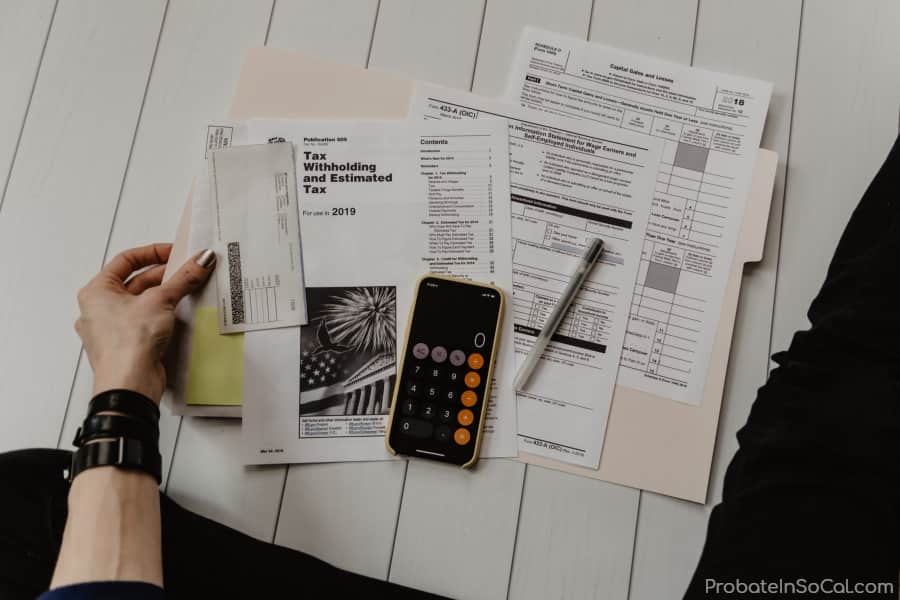This is a fundamental question that people need to know and understand to avoid legal issues in the future. Typically, if someone inherits property after a decedent’s death, that property is worth more than the original owner paid for it. Because this is not your primary property, you could incur capital gains taxes that you wouldn’t have if you had lived in the property and then sold it. Inherited property is calculated on a tax basis, meaning the current value of the property. If you hold onto the home and then sell it, you may have to pay more capital gains taxes later on.

One way to avoid paying this is to live in the house for a minimum of two years. After this time, you can exclude up to $250,000 for single taxpayers or $500,000 for a couple from your taxes.
If you plan on selling, you’ll need to know the property’s original cost to calculate the tax. If the property is now worth less than originally paid, you can deduct a loss, but this is rare, and only some personal stuff works this way.
Again, the calculations are devised from a “basis”. This is the property’s value on the date of death for the previous owner. You only need to know what they paid for the property, not what anyone else previously may have paid.
[Read more: What is a Living Will?]If you choose an alternative valuation date, your basis is the property value on that date. Anything you sell for more than the basis is taxed as capital gain, including personal property and all investments.
There are two exceptions to the ‘basis’ rule:
- If you rented the property, any depreciation you claimed is taxed as a basic income.
- If you used the property at your main home for two of the preceding five years you can exclude those amounts mentioned earlier ($25,000 or $500,000)
To determine the real estate value, consider the condition of the property, the neighborhood, and recent sales prices of comparable properties in the area. Please don’t use the tax bills’ assessed value as they generally do not reflect the real value. Hiring an appraiser if good evidence and probate real estate agents should provide a letter of the appraisal. If a formal probate proceeding is required, you should not get a private one. A court-ordered and appointed referee will perform the appraisal.
The value of income property, as in a rental, is based on the capitalization of income, the kind of financing, the quality of tenants, and the effects rent control may have on such property and other factors. It’s best not to try and do this on your own.
Again, the “stepped-up” basis is the difference between the sales price and the original cost.
If you hold onto the property and sell it a few years later and it’s worth more than the value assessed at the time of the decedent’s death, you will have to pay the difference. If you waited a few years and sold for $400,000, you would have to pay capital gains tax on the difference between the stepped-up value and current value, or $100,000.
For more answers to your probate questions, consult a CPA and your attorney. I will be more than happy to help you fet throught this and help you market the property. Contact me today on my cell 949 748-9834 for a Zoom meeting
More:

